Posted on 12/1/2020
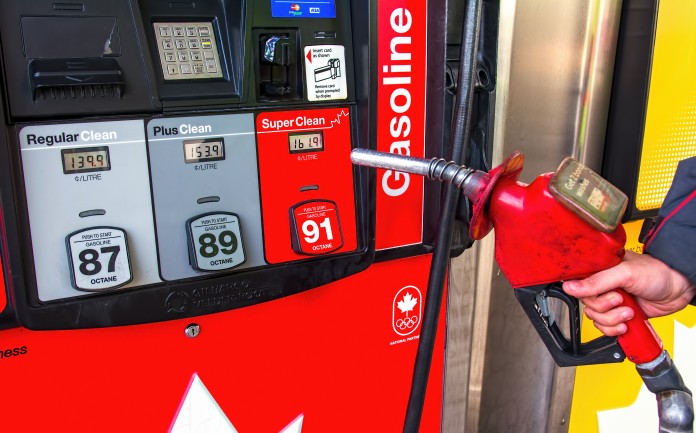
There are a lot of misconceptions about fuel grades – and by fuel grades I mean the octane rating. With names like “Standard," “Super," “Plus," and “Premium,” it’s no wonder that people associate the octane rating/grade with quality. Octane ratings are expressed as a number that typically ranges from 87 to 91 at the pump. The number does not mean “better” but rather signifies the appropriateness of a particular grade of fuel for a particular engine. Octane is a measure of gasoline’s ability to resist igniting before the spark plug goes off. Gasoline and air are compressed in the engine’s combustion chamber. When the pressure reaches a certain point, the gas will spontaneously combust. You don’t want that to happen; you want the spark plug to ignite the fuel at precisely the right time. When the gas combusts prematurely, the piston will try to go down while it is still being pushed up by the crank sh ... read more
Posted on 11/1/2020
Do you know what gas makes up 20.9% of the air we breathe? It's oxygen. Oxygen is an important part of the combustion process that enables your engine to make power. The amount of oxygen in the exhaust provides clues as to how well your engine is running. Your vehicle has oxygen sensors that provide the engine computer with the information it needs to adjust the combustion process. Many vehicles have more than one oxygen sensor. They are positioned in the exhaust system, one between the engine and the catalytic converter, and another after the catalytic converter. An onboard computer compares the oxygen levels before and after the catalytic converter to determine if the converter is working properly. An oxygen sensor may fail for many reasons. You could have bad fuel that contaminated it. Your sensor may have simply worn out. Your engine may be burning oil, and that soot can ruin the sensor. Road contaminants, like salt ... read more
Posted on 10/1/2020
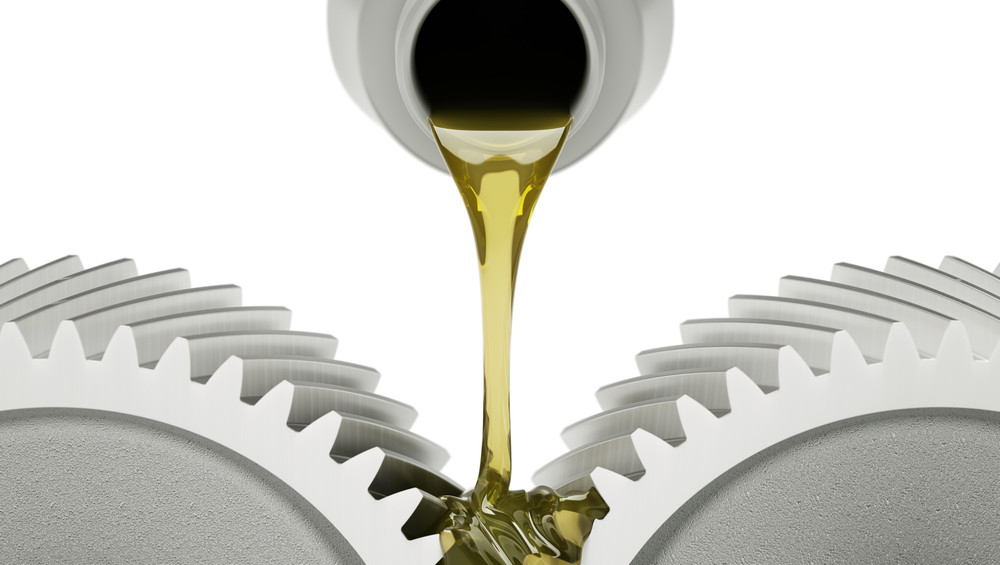
Heard of synthetic motor oil but would like to learn more information? Well, synthetic motor oil is a substitute for conventional oil. Synthetic doesn’t gel or gum-up like conventional oil and it doesn’t vaporize as easily. It protects better in severe driving conditions like stop and go driving as well as in very hot or very cold conditions. More and more new vehicles are being delivered with full synthetic motor oil – with the recommendation to use synthetic for the life of the vehicle. Why is this? Synthetic motor oil maximizes engine power and fuel economy. To see why we’d need a microscope, so we’ll have to settle for using our imaginations. The molecules of conventional motor oil are long hydrocarbon chains. Synthetic motor oil, on the other hand, has uniform, round molecules. Which is slipperier? – A pile of pencils or a pile of marbles? Synthetic motor oil lubricates better because there&rsqu ... read more
Posted on 9/1/2020
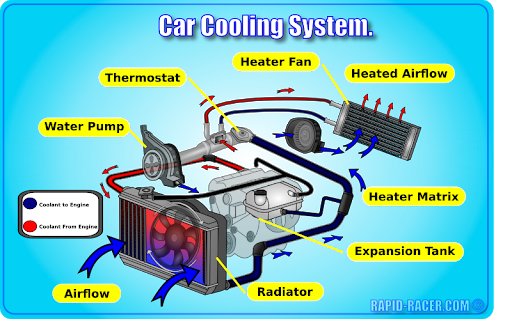
Gilbert drivers often ask questions about the cooling system, the system that cools your vehicle engine and keeps it at the proper operating temperature. Let’s examine the topic in two areas: first, the coolant itself and second, the parts that make up the cooling system. The coolant is the mix of water and antifreeze that circulates through the engine to draw off heat. First, you need to have the proper amount. If you don’t have enough coolant, it can’t keep your vehicle engine cool. You also need the right kind of coolant. Different makes of vehicles require different coolant formulation to protect against corrosion. Finally, your coolant needs to be fresh. Over time and miles of driving, the anti-corrosion additives in the coolant are depleted, and the coolant can actually start to eat away at the vehicle's cooling system parts. Your owner’s manual and your Spectrum Car Care service advisor can help you with ... read more
Posted on 8/18/2020
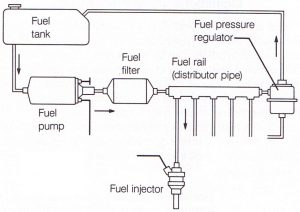
A lot of gas is wasted in dirty fuel delivery systems. Let’s start at the tank. The gas tank gathers of dirt, rust and sediment over the years. That’s why there’s a fuel filter to clean the fuel after it leaves the tank. A dirty filter will rob the engine of the clean gas it needs to run efficiently. The fuel intake components get coated with gum and varnish over time. This results in fuel being delivered inefficiently and some of that gunk getting into the engine. A fuel system service will leave your intake as clean as a whistle. The big fuel thief is dirty fuel injectors. They deliver fuel to the engine at a specified pressure and in a specific spray pattern. When they’re clogged, the fuel doesn’t get atomized the way it’s supposed to and doesn’t get burned as efficiently. See your owner’s manual or ask your service advisor for when fuel system cleaning is recommended
Posted on 6/1/2020

Steering is one of the things we take for granted in our vehicles. Let’s break it down into two areas: first, the power assist and second, the actual parts that steer the vehicle. Most people under 40 have never driven a car or truck without power steering. Most vehicles today have a hydraulic power steering pump that provides boost to help you steer. The pump is usually driven by the serpentine belt, but some newer vehicles have an electric pump. Some vehicles even have an electric motor that directly powers the steering. The important thing to keep in mind is that these pumps and motors will eventually wear out and the hoses will start to leak. You can postpone that day by having a power steering service from time to time. We will drain the old fluid and replace it with fresh fluid. This removes water and contaminants that can corrode power steering parts. Ask your service advisor for the recommended change interval. What about the mechanical steering parts? Is there anythin ... read more
Posted on 5/1/2020
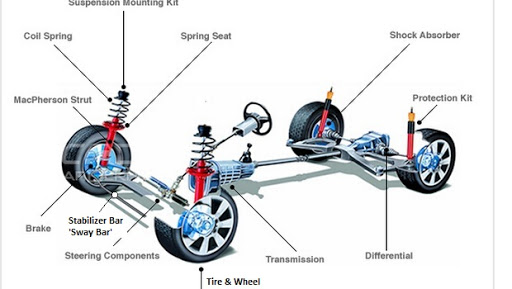
Suspension systems should continue to operate effectively for many years and over long distances, holding your tires’ footprint on the road. Eventually, components do wear out, but how long that takes depends a lot on how you drive in AZ. As you can imagine, if most of your driving is on smooth Gilbert, AZ, highways, your shock absorbers will last a lot longer than if you do most of your driving on bumpy Gilbert roads or hauling heavy loads. In addition to just wearing out, suspension components can be damaged in an accident or by a hard impact – like hitting a pothole, a curb or a rock in the road. Because the life span of shocks can vary so widely, your vehicle manufacturer recommends periodic inspections. During an inspection, your Spectrum Car Care service technician will check for worn, broken or missing suspension parts. If the inspection reveals any problems, take care of this important safety and handling work. When you replace your shocks ... read more
Posted on 4/1/2020
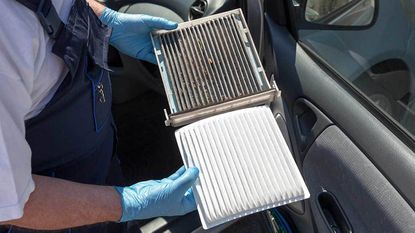
Question: My car has a bad odor when I run the heater or air conditioner. My friend said I might need a new cabin air filter – what's that? Spectrum Car Care Answer: A cabin air filter is a special filter that cleans the air that comes into the Gilbert drivers' passenger compartments – or cabin – of their vehicles. Most new vehicles sold in AZ now have a cabin air filter. A cabin air filter catches dust, pollen, spores and other pollutants before they can get into your cabin. It's kind of like the filter on your furnace in your Gilbert home, cleaning the air you breathe inside your vehicle. As Gilbert drivers can imagine, it eventually gets filled up and can even start to get smelly. So – you just have it replaced. Now some are really easy to access and others are tougher to get to. Your friendly and knowledgeable Spectrum Ca ... read more
Posted on 3/11/2020
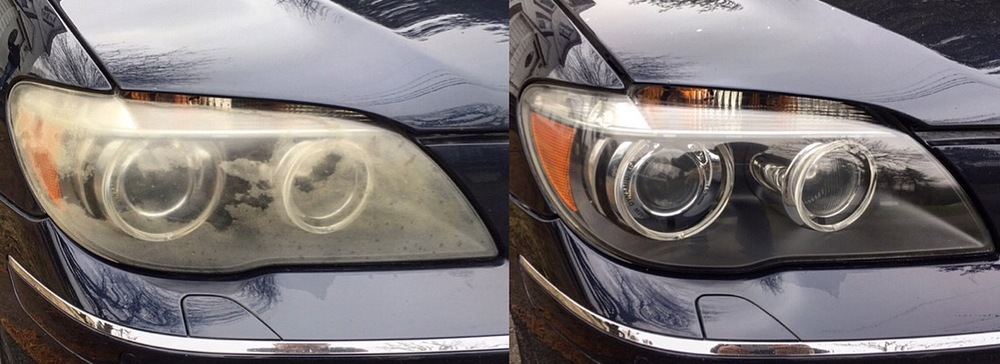
You may be surprised to learn that 40% of traffic fatalities take place at night even though there’s 60% less traffic. It goes to show how important proper visibility is to nighttime driving. Obviously, a clean windshield is important – so are good wiper blades. Your headlights play a big role as well. There are two main concerns. One is with the headlamp, or bulb. The other is with the lens. The fact of the matter is that headlamps go dim over time. You just need to replace them. Some vehicles come with a standard bulb which you can replace, or you can upgrade to a halogen bulb that’s much brighter. Halogen costs a little more, but you’d be amazed at the difference. It’s a good idea to replace your headlamps once a year. The idea is that your lamps never dim to the point that they become a safety issue. Just take care of it at a fall oil change so that your lights will be bright for the ... read more
Posted on 2/1/2020
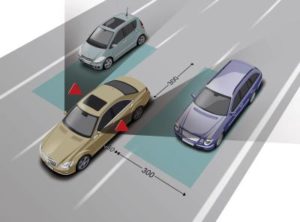
When we drive on our Gilbert AZ streets, we encounter blind spots. We can greatly reduce our blind spots by properly adjusting our mirrors to give the widest coverage possible. Make the adjustments to your vehicle before you start to drive. First, adjust your rear view mirror to give the best possible view directly to the rear of your vehicle or other vehicle type. You don't need it to get a better view of either side of the car, the kids in the back seat or your dazzling smile. The rear view mirror should look to the rear. Next, lean your head until it almost touches the driver's side window. Adjust your side mirror so that you can just barely see the side of your car. Now, lean your head to the middle of the car and adjust the outside mirror so that you can barely see the right side of the car. With your vehicle mirrors adjusted this way, you'll have maximum coverage. Of course drivin ... read more